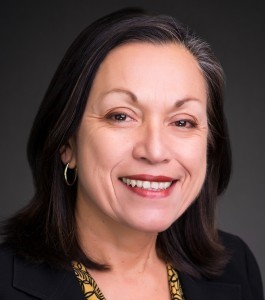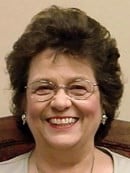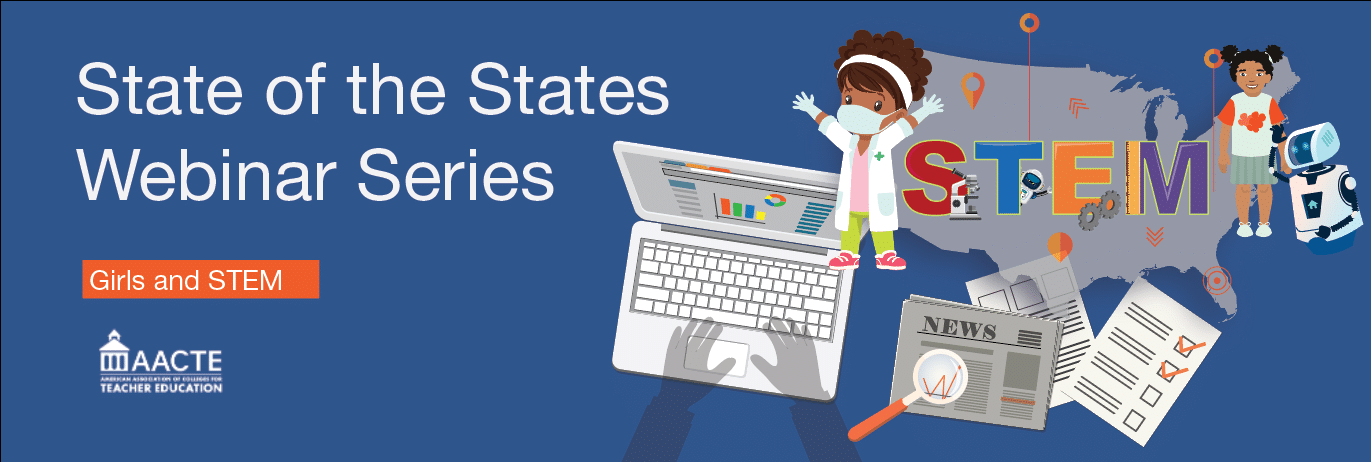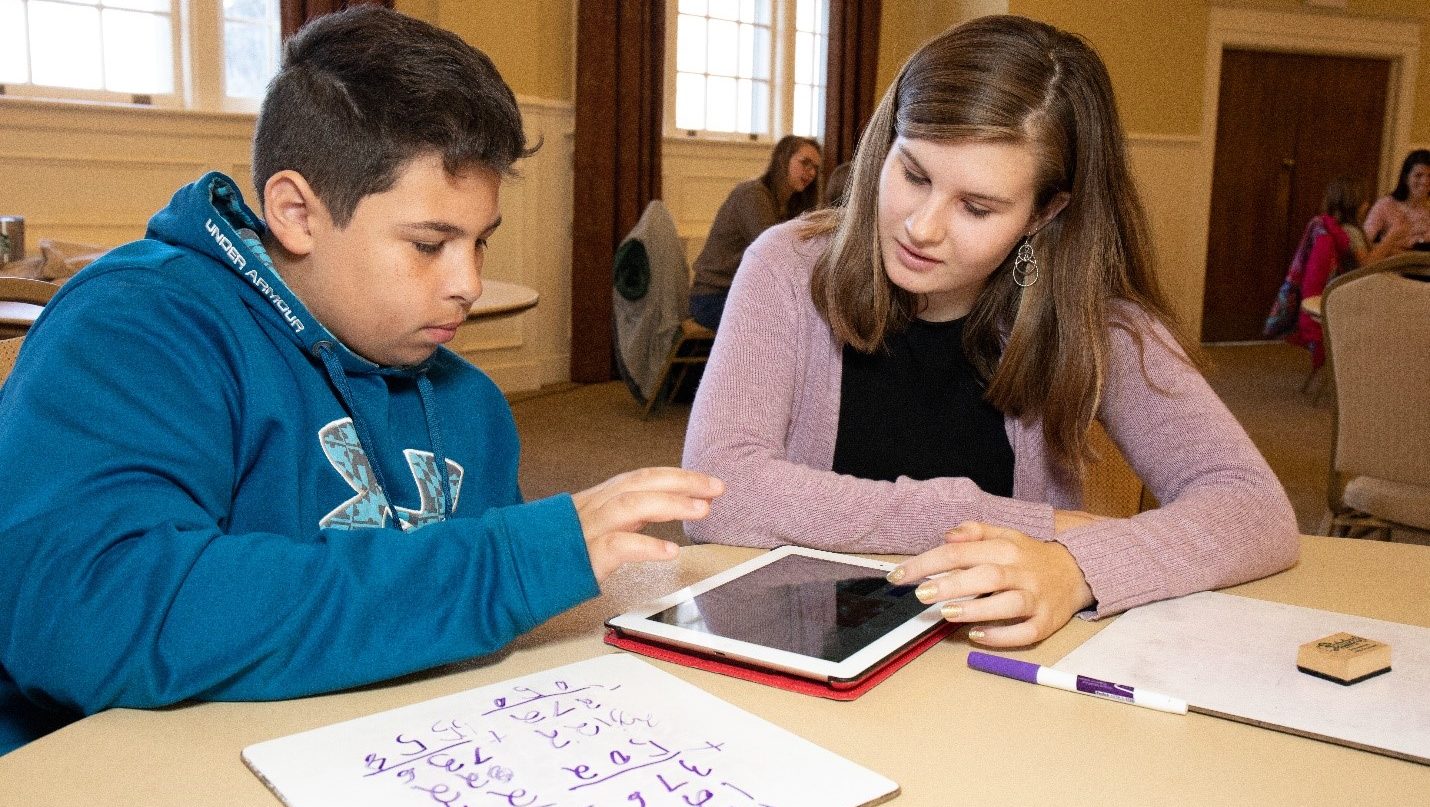14 Jan2020
By Jacqueline Rodriguez

AACTE and partner, Educator Preparation Laboratory (EdPrepLab), an initiative of the Learning Policy Institute (LPI) and Bank Street College of Education, will host the second of a series of four webinars, Preparing educators for diverse, equitable, and inclusive classrooms, on January 30.
This collaborative webinar focuses on strategies to increase the preparation of both teachers and leaders. AACTE and EdPrepLab are excited to provide you with an opportunity to learn from and with our dynamic webinar leaders. Four dynamic experts who are advancing diversity, equity, and inclusion in their practice, research, and daily interactions with teachers, leaders, and community stakeholders will present during the webinar:
13 Jan2020
By Jacqueline Rodriguez
AACTE has partnered with CoSN (The Consortium for School Networking) to provide school leaders with high-quality information on emerging issues and technology trends for K-12 innovation, as a member of the advisory board. Recently, the international advisory board, about 100 education leaders, identified 15 key Hurdles, Accelerators, and Tech Enablers for schools to leverage in 2020 in order to drive innovation in K-12 education.
The next generation of teachers and leaders are being prepared at AACTE member institutions. In collaboration with our K-12 school district colleagues, educator preparation programs can leverage technology that supports the learning and social emotional growth of all our students.
Together AACTE and CoSN are committed to advancing progressive practices in the field and addressing challenges and opportunities such as data privacy & ownership, social emotional learning, and tools for privacy & safety online.
CoSN will issue its insights and findings from the advisory board in two individual free briefs. These publications, along with an implementation toolkit, will be released throughout 2020 to spur ongoing discussions and visibility that analyze the top Hurdles, Accelerators and Technology Enablers in K-12 education. This project is part of CoSN’s EdTechNext initiative, extending their long-standing work surrounding emerging technologies.
13 Jan2020
By Marquita Grenot-Scheyer
 Female leaders throughout history have made significant contributions to societal advancement, in such areas as the civil rights movement and education reform. Yet to this day, women still fight for equity, be it in the boardroom or the classroom. However, the good news is this occurs less often within the educational ecosystem today.
Female leaders throughout history have made significant contributions to societal advancement, in such areas as the civil rights movement and education reform. Yet to this day, women still fight for equity, be it in the boardroom or the classroom. However, the good news is this occurs less often within the educational ecosystem today.
Is equity the norm within educational leadership?
I am a Mexican-American woman, a teacher, and a first generation college student. Therefore, I approach my work from many perspectives using different lenses, and my gender is but one part of my journey. I have had many opportunities in my career to provide leadership at different levels of educational institutions, reflecting what I believe to be a trend in the last decade, where more and more women have assumed leadership positions in educational institutions. Take for example the system in which I am a leader: The California State University. We have 23 campuses and the majority of our presidents are female. And while I can’t single out my gender from my other identities as a leader, what I can tell you is that women continue to make a difference in the field because of their passionate dedication to better education for all.
10 Jan2020
By Jane E. West

This blog post is written by AACTE consultant Jane West and is intended to provide updated information. The views expressed in this post do not necessarily reflect the views of AACTE.
Happy New Year! Welcome to the new decade and the second session of the 116th Congress. Can we even imagine what it holds for us? One thing we do know – our advocacy on behalf of equity and education will only amplify!
Funding Cycle for 2021: On Schedule?
With the ink barely dry on the FY 2020 funding packages, the budget cycle for FY 2021 is already on the horizon. The Trump Administration announced this week that it intends to release its Budget Proposal for FY 2021 on February 10, thus getting the cycle moving on time. The release of the proposal will be followed by hearings in House and Senate Appropriations committees and months of deliberation.
10 Jan2020
By Jerrica Thurman
 Barbara Burch, AACTE past president and provost emeritus at Western Kentucky University (WKU), passed away on January 5 at the age of 81.
Barbara Burch, AACTE past president and provost emeritus at Western Kentucky University (WKU), passed away on January 5 at the age of 81.
Barbara held leadership roles in many national education organizations including AACTE and the National Council of Accreditation of Teacher Education. In 2014, the American Association of State Colleges and Universities created the Barbara Burch Award for Faculty Leadership in Civic Engagement in honor of her “extraordinary national leadership in the design, creation, and ongoing development of the American Democracy Project.”
“Barbara was a remarkable and dedicated advocate for AACTE and for all of educator preparation,” said David Imig, senior fellow at the Stanford Carnegie Foundation and AACTE president emeritus. “She always expected the very best of her colleagues and the AACTE leadership. She was generous in her praise of others and will long be remembered for her great respect for the entire AACTE family.”
10 Jan2020
By Jerrica Thurman

Gain valuable ideas and resources to tackle problems of practice during AACTE’s Deeper Dive sessions at the 2020 Annual Meeting in Atlanta. Offered in three, stand-alone time blocks, AACTE’s six Deeper Dive forums provide interactive and timely learning experiences with leaders and innovators from the field.
Each day of the conference, you can choose to attend one of the Deeper Dives from the following pairs:
10 Jan2020
By Ward Cummings

The subject of this month’s State of the States webinar is Girls and STEM. In 2009, four university researchers explored their suspicion that girls’ lagging behind boys in math achievement was substantially influenced by the math anxieties of their female elementary school teachers. The result of their research showed their suspicions to be correct and that some of the achievement gap was indeed a result of female teachers’ own apprehensions about math and their personal biases about the abilities of female students. The researchers found that female students can pick up on and even absorb negative thoughts from their teachers as early as kindergarten. Learn more.
Since that study was conducted, the achievement gap in math between boys and girls has narrowed, but still persists. The webinar will focus on what states are doing legislatively, with programs and with policy to eradicate the STEM achievement gap.
Register now for this members-only webinar:
State of the States: Girls and Stem
Wednesday, January 22
10:00 a.m. ET
09 Jan2020
By Trish Parrish
 If you have been involved with AACTE for any length of time, you know how important it is to advocate on behalf of educator preparation. The Committee on Government Relations and Advocacy, one of AACTE’s standing committees, is offering a preconference at the AACTE 2020 Annual Meeting to help you improve your advocacy skills. Your Levers of Civic Power: Moving the Gears of Democracy is half-day interactive session designed to provide information and practice in three important areas of advocacy: participating in town halls, speaking before a committee or commission, and engaging candidates during a debate.
If you have been involved with AACTE for any length of time, you know how important it is to advocate on behalf of educator preparation. The Committee on Government Relations and Advocacy, one of AACTE’s standing committees, is offering a preconference at the AACTE 2020 Annual Meeting to help you improve your advocacy skills. Your Levers of Civic Power: Moving the Gears of Democracy is half-day interactive session designed to provide information and practice in three important areas of advocacy: participating in town halls, speaking before a committee or commission, and engaging candidates during a debate.
Town halls provide a forum to interact with your elected officials and candidates for office on a variety of topics that may or may not be announced in advance. Committees or commissions might also convene around your state or at the state capitol or legislative buildings. Debates, like town halls, can happen around the state, and give you an opportunity to engage with candidates on issues important to the profession.
09 Jan2020
By Beth Kubitskey, Patricia Alvarez McHatton, Anne Tapp Jaksa and Kim Winter
 The Women in Leadership Topical Action Group seeks to strengthen colleges of education through leadership development; advance a professional network among members interested in leadership; encourage diverse members to pursue leadership positions; support women considering career or advancement opportunities in leadership; initiate, encourage, and disseminate studies of women in leadership; and provide professional development and mentoring to members interested in enhancing professional and personal success in concert with their positions.
The Women in Leadership Topical Action Group seeks to strengthen colleges of education through leadership development; advance a professional network among members interested in leadership; encourage diverse members to pursue leadership positions; support women considering career or advancement opportunities in leadership; initiate, encourage, and disseminate studies of women in leadership; and provide professional development and mentoring to members interested in enhancing professional and personal success in concert with their positions.
History: The Women in the Deanship began as a Special Study Group. In 2007, the group researched and published a collection of case studies in It’s All About People: Case Studies in Higher Education Leadership (Lovell, S., Damico, S. and Hopkins, D. (editors), 2007). In 2013, AACTE created The Women in the Deanship TAG was created. The group has a long history of supporting women leaders.
06 Jan2020
Virtual Math Mentorship Project: Partnering Elementary Math Methods Course with Rural Title 1 School
By Jennie Carr and Tammy T. May

Photo Credit: Ben Wyrick
Ed Prep Matters features the “Revolutionizing Education” column to spotlight the many ways AACTE, member institutions, and partners are pioneering leading-edge research, models, strategies and programs that focus on the three core values outlined in the current AACTE strategic plan: Diversity, Equity, and Inclusion; Quality and impact; and Inquiry and Innovation.
This article was written by Jennie M. Carr of Bridgewater College and Tammy T. May of Rockingham County Public Schools.
Educator preparators are often seeking unique and meaningful experiences for their teacher candidates. With the knowledge that high quality mentoring relationships can demonstrate positive improvements in academic performance, attendance, feelings of self-confidence, resilience, perceived social acceptance, and relationships with others, we began working collaboratively to create a mutually beneficial math mentorship partnership between Bridgwater College and an elementary school in the Rockingham County Public School District (Coller & Kuo, 2014; Masters & Kreeger, 2017). The logistics of managing a traditional face-to-face mentoring experience was too difficult and there is no required field experience in the college’s elementary math methods course. Because online tools are typically utilized on college campuses and with the school district’s recent 1:1 Chromebook adoption, we crafted the virtual math mentorship (Hartun & Harvey, 2015).
Connecting the virtual math mentorship to teacher candidates’ capstone project in the math methods course was vital to its success. The eight-week project consisted of a teacher candidate field trip to the elementary school, two virtual Google Hangout sessions, four virtual Seesaw pen pal exchanges, and the creation of a personalized and interest-based differentiated math lesson for a fifth grade mentee, which was implemented during the students field trip to Bridgewater College.
06 Jan2020
By Nicole M. Leffler and Tyler O. Sonnenberg
This article first appears on the Western Michigan University website and is reprinted with permission.
 Despite a national trend toward declining enrollment in teacher preparation programs, Western Michigan University’s enrollment is up this year by about 9% in these majors, or 70 more future teachers who have chosen WMU to prepare them to enter the workforce over the last year. The largest increases are seen in early childhood education, special education, and physical and health education teacher preparation majors.
Despite a national trend toward declining enrollment in teacher preparation programs, Western Michigan University’s enrollment is up this year by about 9% in these majors, or 70 more future teachers who have chosen WMU to prepare them to enter the workforce over the last year. The largest increases are seen in early childhood education, special education, and physical and health education teacher preparation majors.
So why are students choosing WMU?
Teacher academy partnerships and credit opportunities. WMU has partnered with districts in Kalamazoo, Van Buren, Calhoun, and Allegan Counties to help high school students explore the teaching profession. Students attend a one-day teacher academy conference at WMU where they receive professional development and engage with WMU faculty and students. Students are invited back to campus for tours and student panels. Through this partnership, WMU may grant college credit for state-approved teacher preparation courses taken at the high school level. Having a connection to the College of Education and Human Development increases the likelihood a student will decide to attend WMU.
03 Jan2020
By Deborah Koolbeck
 In a Dear Colleague Letter, Karen Marrongelle of the National Science Foundation (NSF) invites proposals to the Improving Undergraduate STEM Education: Education and Human Resources Program from institutions of higher education that are new to the program. The letter specifically includes the opportunity in the Engaged Student Learning track of “… improving K-12 STEM education through undergraduate preservice STEM teacher preparation …”
In a Dear Colleague Letter, Karen Marrongelle of the National Science Foundation (NSF) invites proposals to the Improving Undergraduate STEM Education: Education and Human Resources Program from institutions of higher education that are new to the program. The letter specifically includes the opportunity in the Engaged Student Learning track of “… improving K-12 STEM education through undergraduate preservice STEM teacher preparation …”
Marrongelle heads the NSF Directorate for Education and Human Resources , which supports “the development of a diverse and well-prepared workforce of scientists, technicians, engineers, mathematicians, and educators and a well-informed citizenry that have access to the ideas and tools of science and engineering.”
02 Jan2020
By Michael N. Cosenza
This article originally appeared in the VC Reporter Power to Speak op-ed section and is reprinted with permission.

With all the political distractions in the news, one critical issue seems to get very little attention. This is the impending teacher shortage. I use the term impending because here in Ventura County, we have not felt the pain of the teacher shortage in quite the same way as other areas of the state. That will not be the case for long, however.
One significant factor contributing to the shortage is that young high school and college-age students are simply not choosing teaching as a career. In fact, the Learning Policy Institute (LPI) has reported a 73% enrollment decline in California teacher preparation programs since 2002. According to LPI, more than 75,000 candidates were enrolled to become teachers in 2002 compared to just over 20,000 in 2016. Looking at the same years, the California Commission on Teacher Credentialing (CTC) reported a 47% decline in new teacher credentials issued, with 29,556 in 2002 dropping to 15,440 in 2016. This means each year we are sending fewer new teachers into the profession to take the place of retiring baby boomers and fill the openings created by increased population. In short, we are not preparing enough new teachers to sustain our school system.
02 Jan2020
By Amelia Vance

Since 2013, over 130 new student privacy laws have passed in 41 states, with more bills and regulations being rolled out each year that include many new requirements for educators and administrators to implement. Some state laws include the threat of jail or large fines when school staff even unintentionally violate student privacy. Unfortunately, few states have received funding or support in implementing these new laws.
This massive shift in the legal landscape makes it hard for schools and districts to keep up. This isn’t only a legal problem. As technology changes and the amount of information schools collect and maintain increases, ensuring that new educators and administrators come into their schools with the skills needed to adequately protect student privacy in their day-to-day work is extremely challenging.
02 Jan2020
By Carly Leatherwood and Samantha Pelham
This article originally appeared on the Ohio University Ohio News website and is reprinted with permission.
Ohio University received the Teacher Quality Partnership (TQP) grant that will allow OHIO to partner with the Educational Service Center of Central Ohio (ESCCO) to improve the quality of OHIO’s special education teacher preparation program, which will improve the academic achievement of K-12 students.
The grant will span over five years, totaling more than $4.1 million to help accomplish this goal. It also provides opportunities for adult learners, supporting OHIO’s Strategic Framework and the initiative to catalyze strategic enrollment for lifelong learning.
“This partnership with ESCCO allows Ohio University to serve Ohio in preparing the next generation of teachers to work with all learners,” said Renée A. Middleton, dean of the Patton College of Education. “Our vision statement is ‘The Patton College—Where Learning Has No Limits!’ This partnership for teacher quality will allow us to fulfill that vision and commitment.”








 Female leaders throughout history have made significant contributions to societal advancement, in such areas as the civil rights movement and education reform. Yet to this day, women still fight for equity, be it in the boardroom or the classroom. However, the good news is this occurs less often within the educational ecosystem today.
Female leaders throughout history have made significant contributions to societal advancement, in such areas as the civil rights movement and education reform. Yet to this day, women still fight for equity, be it in the boardroom or the classroom. However, the good news is this occurs less often within the educational ecosystem today.
 Barbara Burch, AACTE past president and provost emeritus at Western Kentucky University (WKU), passed away on January 5 at the age of 81.
Barbara Burch, AACTE past president and provost emeritus at Western Kentucky University (WKU), passed away on January 5 at the age of 81.

 If you have been involved with AACTE for any length of time, you know how important it is to advocate on behalf of educator preparation. The Committee on Government Relations and Advocacy, one of AACTE’s standing committees, is offering a preconference at the AACTE 2020 Annual Meeting to help you improve your advocacy skills. Your Levers of Civic Power: Moving the Gears of Democracy is half-day interactive session designed to provide information and practice in three important areas of advocacy: participating in town halls, speaking before a committee or commission, and engaging candidates during a debate.
If you have been involved with AACTE for any length of time, you know how important it is to advocate on behalf of educator preparation. The Committee on Government Relations and Advocacy, one of AACTE’s standing committees, is offering a preconference at the AACTE 2020 Annual Meeting to help you improve your advocacy skills. Your Levers of Civic Power: Moving the Gears of Democracy is half-day interactive session designed to provide information and practice in three important areas of advocacy: participating in town halls, speaking before a committee or commission, and engaging candidates during a debate. The Women in Leadership Topical Action Group seeks to strengthen colleges of education through leadership development; advance a professional network among members interested in leadership; encourage diverse members to pursue leadership positions; support women considering career or advancement opportunities in leadership; initiate, encourage, and disseminate studies of women in leadership; and provide professional development and mentoring to members interested in enhancing professional and personal success in concert with their positions.
The Women in Leadership Topical Action Group seeks to strengthen colleges of education through leadership development; advance a professional network among members interested in leadership; encourage diverse members to pursue leadership positions; support women considering career or advancement opportunities in leadership; initiate, encourage, and disseminate studies of women in leadership; and provide professional development and mentoring to members interested in enhancing professional and personal success in concert with their positions.
 Despite a national trend toward declining enrollment in teacher preparation programs, Western Michigan University’s enrollment is up this year by about 9% in these majors, or 70 more future teachers who have chosen WMU to prepare them to enter the workforce over the last year. The largest increases are seen in early childhood education, special education, and physical and health education teacher preparation majors.
Despite a national trend toward declining enrollment in teacher preparation programs, Western Michigan University’s enrollment is up this year by about 9% in these majors, or 70 more future teachers who have chosen WMU to prepare them to enter the workforce over the last year. The largest increases are seen in early childhood education, special education, and physical and health education teacher preparation majors. In a
In a 
